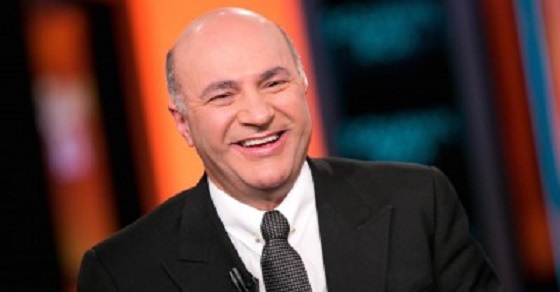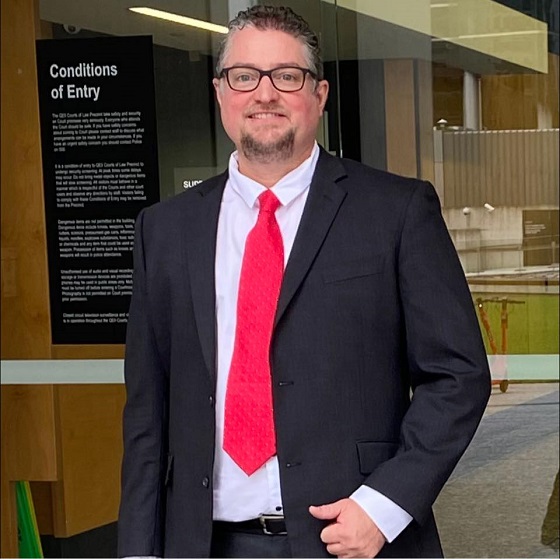Alberta
Election follow up: A proud Canadian’s heartbreaking breakup letter with Canada

Submitted by Mark Meincke of Okotoks
Dear Canada,
When I was a child, Pierre Elliott Trudeau was our Prime Minister, and when he instituted the National Energy Program, Alberta was devastated. My Dad was a successful business owner, who employed dozens and dozens of people. All his employees lost their jobs. We declared bankruptcy, and were foreclosed on. My Dad lost everything, so my parents, my sister and I lost our home.
Our family went from being successful, to living in our Uncles basement for a year. Our family spent a full year, with 10 people in a house that only had one bathroom. It was rough for all of us…but we made it through. Alberta eventually recovered, but our family never fully bounced back, and we still feel the pain to this day.
On October 21rst, you re-elected Justin Trudeau to be your Prime Minister.
Like you, I’m a proud Canadian, and have proven my loyalty by risking my life in a war zone to protect our country. I was wounded there, and have been suffering from those wounds for over 20 years. My family has also suffered from those wounds, and is still suffering today.
Canada, you elected a Prime Minister who said that Veterans were asking for more than the government is willing to give….so every day another Veteran who is desperate for help, takes their own life. Their cries for help continue to go unanswered.
Canada, you elected a Government who has openly declared they will destroy the Alberta energy sector, which will destroy Alberta. Your response…”Well, I guess Alberta should have diversified their economy…so tough luck”. You don’t seem to understand, that it’s more than the oil sector you’ve shut down. Hundreds of restaurants have already shut down, with hundreds more about too.. Downtown Calgary high rises are vacant, property values are dropping, and businesses of all sorts are evaporating with no end in sight.
Tens of thousands of people have lost their jobs, have gone bankrupt, and have lost their homes. Suicide is on the rise, and mental health is on the decline. All of this pain…and you don’t seem to notice. Still…somehow it is US who is paying YOU equalization payments. How is this possible? If you won’t help us by sending the cash back in our direction, at least stop taking our money until we can get back on our feet….please!
Canada, you chose to replace the cleanest, most ethical oil in the world with Saudi oil. By doing so, you are supporting a dictatorship that kills homosexuals, and subjugates women. How can you be in favor of human rights, gay rights, and women’s rights….and yet support Saudi oil?
The result of your decision, is LESS clean, ethical oil, and MORE dirty, unethical oil. ZERO improvement will occur with carbon emissions, instead there will be MORE emissions, and LESS progress on human rights. Destroying the Alberta energy sector goes against all of your beliefs and morals…yet somehow you still justify your decision.
When we pleaded for help, you rolled your eyes. When Alberta warned you that our separtist sentiment was on the rise, you scoffed. When Justin Trudeau…the man who openly hates the west won the election…you cheered. You cheered for the devastation of the west.
I love you Canada..I love you so very much. I love you so much that I’ve given all that I have to give to you. I love you, but we are in an abusive relationship.
There is no pain so great as unrequited love.
A good marriage is one where each has an equal say. A good marriage is one where each respects the opinions of the other, even if they disagree. In a good marriage, each spouse not just allows for the individuality of the other, they support and encourage individuality.
Alberta has done all that we can to be a good partner to you. We have put bread on the table, paid your bills, put your kids through school, and supported your freedom to be whoever you want to be. But still, …you don’t love us back. You don’t even want to treat us as casual friends. Alberta feels more than just left out, we feel despised.
Dear Canada, the time has come for us to go our separate ways. We love you…SOOOO MUCH, but we now realize that you will never love us back. For most of my life, Separation was not a possibility, but now I realize it’s the only way we can survive.
Heart broken,
Alberta
(Written by Mark E. Meincke, blending his real life story with the persona of Alberta)
Alberta
Federal taxes increasing for Albertans in 2025: Report
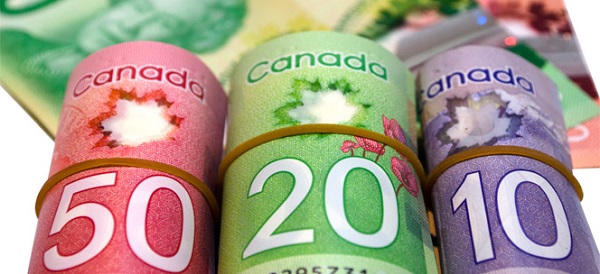
From the Canadian Taxpayers Federation
By Kris Sims
The Canadian Taxpayers Federation released its annual New Year’s Tax Changes report today to highlight major tax changes in 2025.
The key provincial tax change expected for Alberta is a reduction in the income tax rate.
“The Alberta government promised to reduce our lowest income tax bracket from 10 down to eight per cent and we expect the government to keep that promise in the new year,” said Kris Sims, CTF Alberta Director. “The United Conservatives said this provincial income tax cut would save families about $1,500 each and Alberta families need that kind of tax relief right now.
“Premier Danielle Smith promised to cut taxes and Albertans expect her to deliver.”
Albertans will see several federal tax hikes coming from Ottawa in 2025.
Payroll taxes: The federal government is raising the mandatory Canada Pension Plan and Employment Insurance contributions in 2025. These payroll tax increases will cost a worker up to an additional $403 next year.
Federal payroll taxes (CPP and EI tax) will cost a worker making $81,200 or more $5,507 in 2025. Their employer will also be forced to pay $5,938.
Carbon tax: The federal carbon tax is increasing to about 21 cents per litre of gasoline, 25 cents per litre of diesel and 18 cents per cubic metre of natural gas on April 1. The carbon tax will cost the average household between $133 and $477 in 2025-26, even after the rebates, according to the Parliamentary Budget Officer.
Alcohol taxes: Federal alcohol taxes will increase by two per cent on April 1. This alcohol tax hike will cost taxpayers $40.9 million in 2025-26, according to Beer Canada.
Following Budget 2024, the federal government also increased capital gains taxes and imposed a digital services tax and an online streaming tax.
Temporary Sales Tax Holiday: The federal government announced a two month sales tax holiday on certain items like pre-made groceries, children’s clothing, drinks and snacks. The holiday will last until Feb. 15, 2025, and could save taxpayers $2.7 billion.
“In 2025, the Trudeau government will yet again take more money out of Canadians’ pockets with payroll tax hikes and will make life more expensive by raising carbon taxes and alcohol taxes,” said Franco Terrazzano, CTF Federal Director. “Prime Minister Justin Trudeau should drop his plans to take more money out of Canadians’ pockets and deliver serious tax relief.”
You can find the CTF’s New Year’s Tax Changes report HERE.
Alberta
Fraser Institute: Time to fix health care in Alberta

From the Fraser Institute
By Bacchus Barua and Tegan Hill
Shortly after Danielle Smith was sworn in as premier, she warned Albertans that it would “be a bit bumpy for the next 90 days” on the road to health-care reform. Now, more than two years into her premiership, the province’s health-care system remains in shambles.
According to a new report, this year patients in Alberta faced a median wait of 38.4 weeks between seeing a general practitioner and receiving medically necessary treatment. That’s more than eight weeks longer than the Canadian average (30.0 weeks) and more than triple the 10.5 weeks Albertans waited in 1993 when the Fraser Institute first published nationwide estimates.
In fact, since Premier Smith took office in 2022, wait times have actually increased 15.3 per cent.
To be fair, Premier Smith has made good on her commitment to expand collaboration with the private sector for the delivery of some public surgeries, and focused spending in critical areas such as emergency services and increased staffing. She also divided Alberta Health Services, arguing it currently operates as a monopoly and monopolies don’t face the consequences when delivering poor service.
While the impact of these reforms remain largely unknown, one thing is clear: the province requires immediate and bold health-care reforms based on proven lessons from other countries (e.g. Australia and the Netherlands) and other provinces (e.g. Saskatchewan and Quebec).
These reforms include a rapid expansion of contracts with private clinics to deliver more publicly funded services. The premier should also consider a central referral system to connect patients to physicians with the shortest wait time in their area in public or private clinics (while patients retain the right to wait longer for the physician of their choice). This could be integrated into the province’s Connect Care system for electronic patient records.
Saskatchewan did just this in the early 2010s and moved from the longest wait times in Canada to the second shortest in just four years. (Since then, wait times have crept back up with little to no expansion in the contracts with private clinics, which was so successful in the past. This highlights a key lesson for Alberta—these reforms are only a first step.)
Premier Smith should also change the way hospitals are paid to encourage more care and a more patient-focused approach. Why?
Because Alberta still generally follows an outdated approach to hospital funding where hospitals receive a pre-set budget annually. As a result, patients are seen as “costs” that eat into the hospital budget, and hospitals are not financially incentivized to treat more patients or provide more rapid access to care (in fact, doing so drains the budget more rapidly). By contrast, more successful universal health-care countries around the world pay hospitals for the services they provide. In other words, by making treatment the source of hospital revenue, hospitals provide more care more rapidly to patients and improve the quality of services overall. Quebec is already moving in this direction, with other provinces also experimenting.
The promise of a “new day” for health care in Alberta is increasingly looking like a pipe dream, but there’s still time to meaningfully improve health care for Albertans. To finally provide relief for patients and their families, Premier Smith should increase private-sector collaboration, create a central referral system, and change the way hospitals are funded.
-

 Brownstone Institute1 day ago
Brownstone Institute1 day agoA Potpourri of the World’s Unexposed Scandals
-

 Economy1 day ago
Economy1 day agoThe White Pill: Big Government Can Be Defeated (Just Ask the Soviet Union)
-
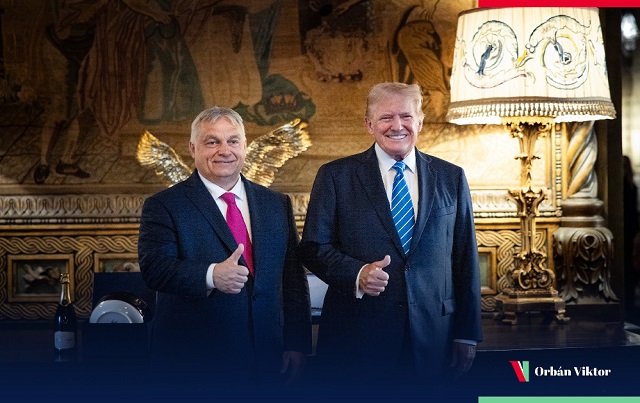
 conflict1 day ago
conflict1 day agoTrump has started negotiations to end the war in Ukraine
-

 Alberta6 hours ago
Alberta6 hours agoFederal taxes increasing for Albertans in 2025: Report
-
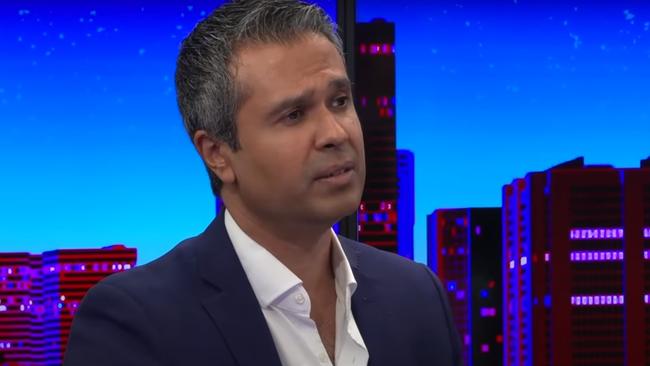
 COVID-191 day ago
COVID-191 day agoEsteemed UK Doctor pleads with governments to cancel COVID-19 vaccines
-

 COVID-195 hours ago
COVID-195 hours agoChildren who got COVID shots more likely to catch the virus than those who didn’t, study finds
-

 Business1 day ago
Business1 day agoThe CBC gets $1.4 billion per year, but the Trudeau government wants to give it more
-
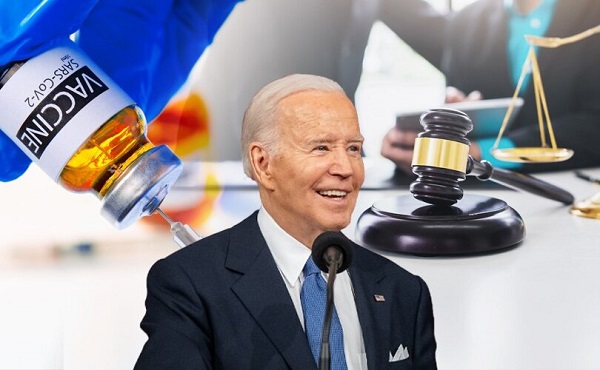
 COVID-191 day ago
COVID-191 day agoBiden HHS extends immunity for COVID shot manufacturers through 2029





